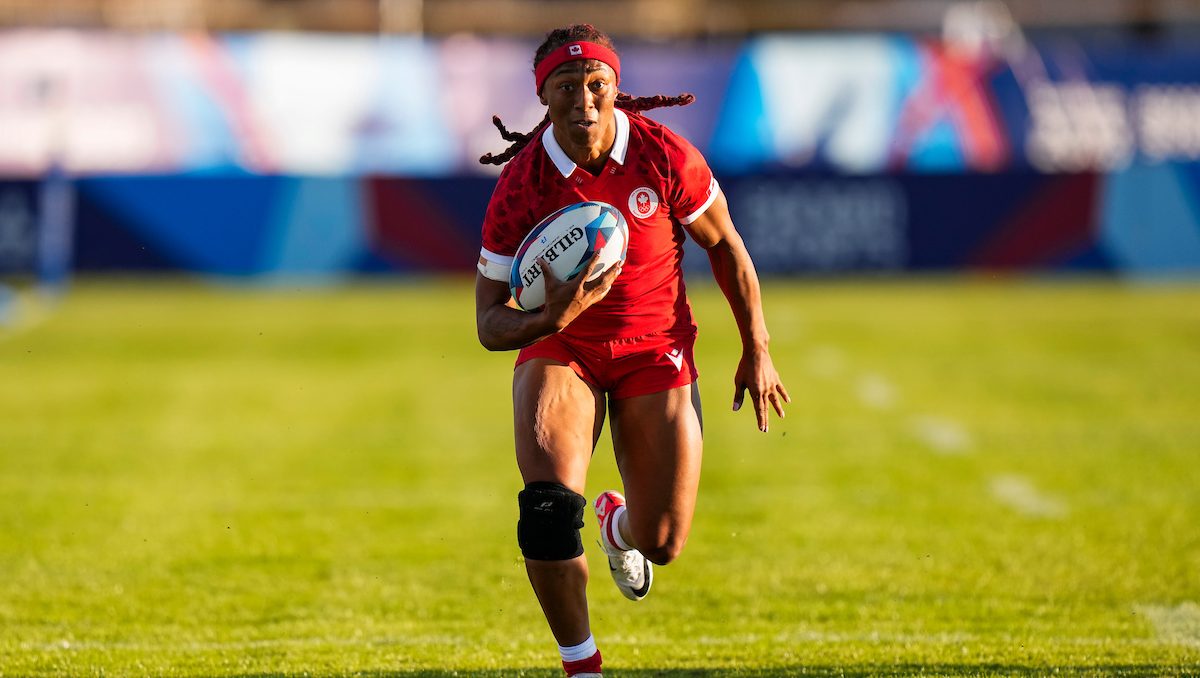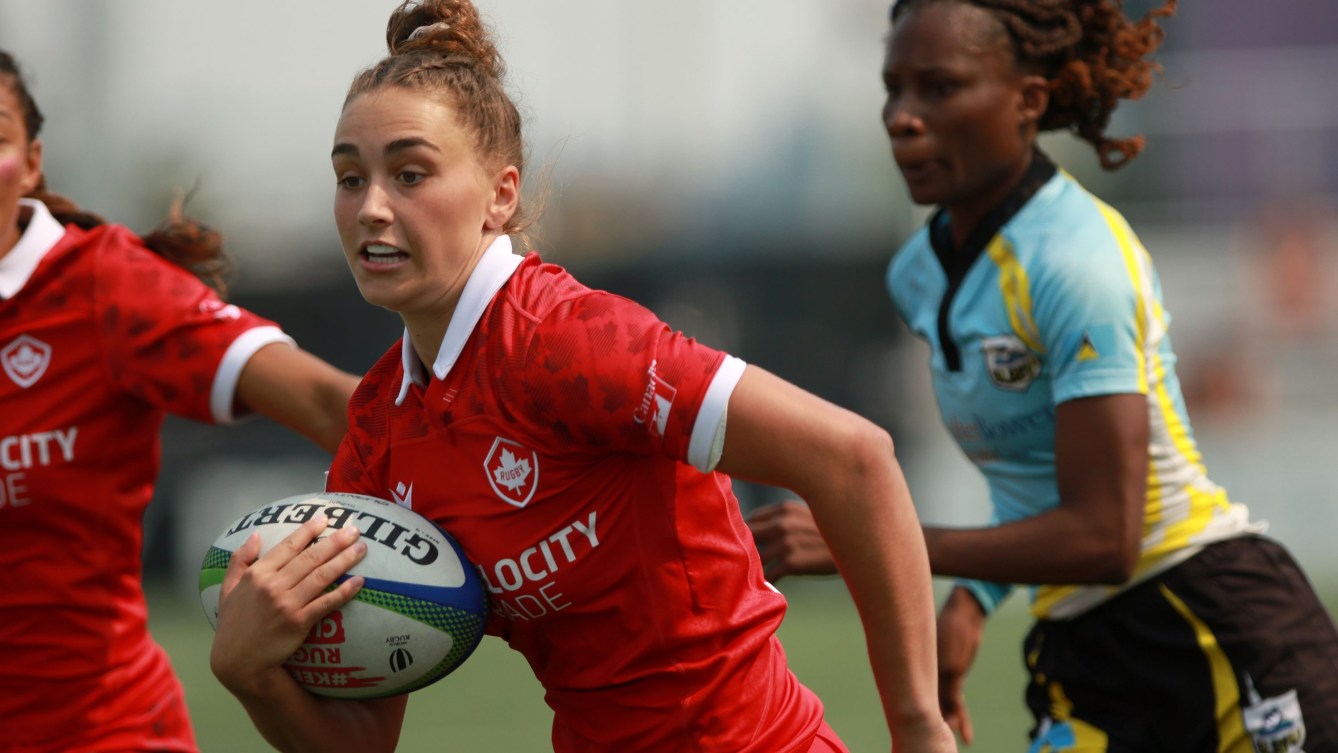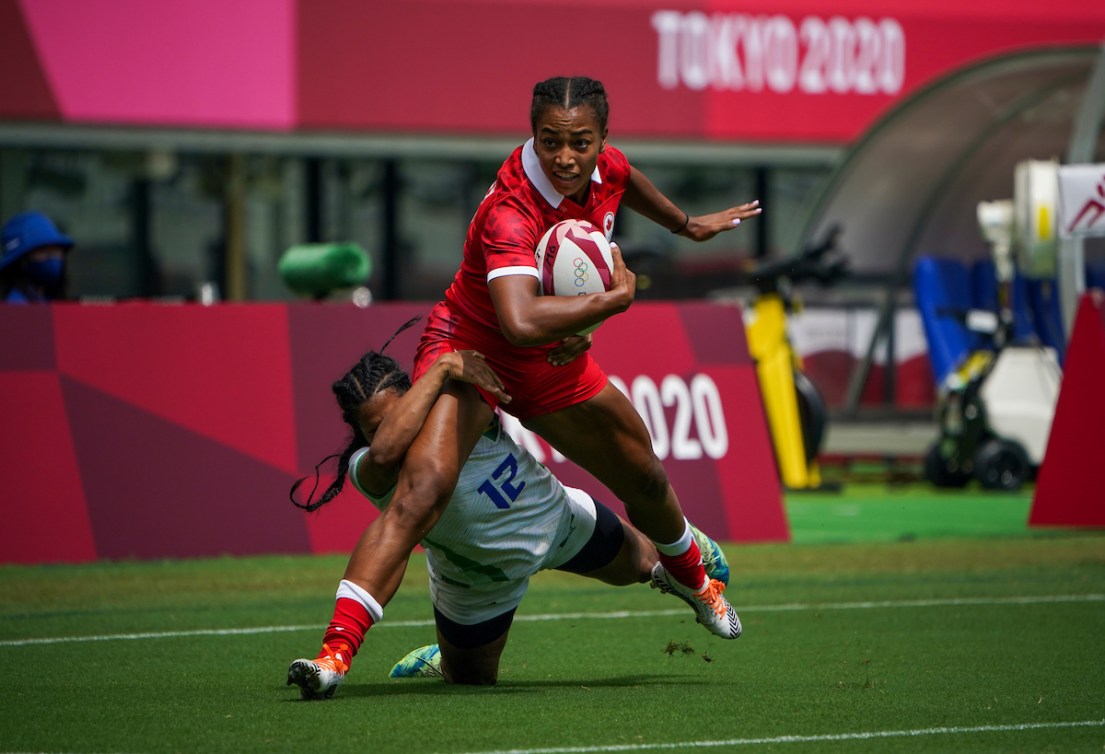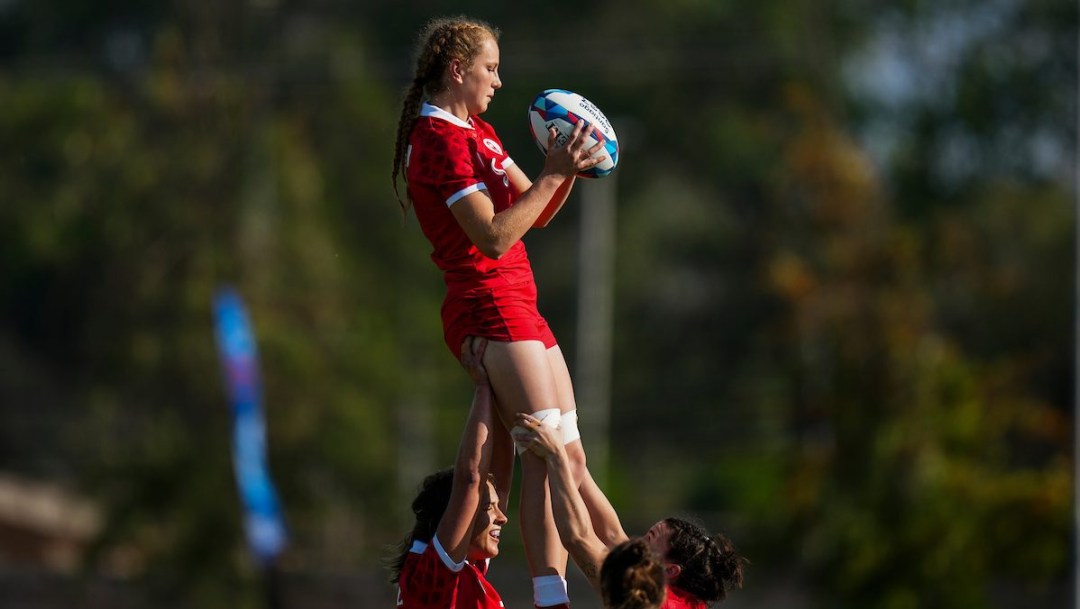Team Canada’s women’s rugby players put their trust in one another at Paris 2024
Resilient. Determined. Tenacious. These are just a few of the words that players on Team Canada’s women’s rugby sevens team use to describe the group of athletes headed to Paris.
Their path to Paris 2024 was not an easy one, with a slower build to full momentum since the last Olympic Games. Trust in the process, their coaches, and each other resulted in a rise from a ninth place finish on the SVNS Series last year to a fifth place finish this year.
According to team captain Olivia Apps, the bumpy journey has strengthened the team’s bond.
“I think a big part of our team culture has been the adversity that we’ve faced together. The last two seasons have just been super challenging in our performances and finding consistency in our roster. There’s been injuries and lots of different hurdles. But for us going through that together and still wanting to, at the end of the day, hang out with each other off the field and spend time talking about rugby and wanting to be better, that builds trust.”
Apps is one of only three players returning from the Tokyo 2020 team. The other two are Keyara Wardley and Charity Williams, the latter of which is the only player on the team for whom Paris 2024 will be a third Olympic Games. In that sense, Williams is the only player who has experienced a “normal” Games–with fans in the stands and the ability to interact with other athletes in the Village, so the team will be looking to her for experience.

“I think in that aspect, it’s going to be hard to try and navigate just because when we were in Tokyo, we weren’t allowed to interact with other people and there were no fans,” says Wardley. “We’ve worked so hard to get here, so we want to enjoy the process while we can. But we also need to know when to dial it in and I think the returning athletes can definitely help kind of lead that.”
Apps took over the captaincy from Ghislaine Landry, one of the world’s all-time leading scorers who was a key figure in the rise of Canadian women’s rugby and their bronze medal at Rio 2016, when women’s rugby sevens made its Olympic debut.
“Ghislaine was a leader that really led by example. I think her presence on the field was such that it was undeniable that she was the captain of the team and the leader in that way,” Apps said.
“I think I had to find my own stream of leadership. I’m somebody that’s very outgoing, I’m extroverted, I love to connect with my teammates. I think that’s where I differed from Ghislaine and probably how I can connect with my teammates in a different way. But then I also learned from her that there are moments to speak, to take the mic, and there are moments to give it to others and create space for others to also lead. Something that I learned from her is that sometimes the best leadership is just existing!”
Apps is joined in team leadership by vice-captain, Chloe Daniels, who perhaps favours a leadership style more akin to Landry’s.

“I think for me, on field and off, I’m a pretty cool-headed, calm person. So I think in a super exciting and busy atmosphere, I hope I can bring that calmness to the team to just help us focus in, and really just go back to our basics and just be ready to play our game.”
Qualification for Paris 2024 was extra special for Team Canada, as they were able to do it at home. The team qualified last August at the 2023 Rugby Americas North Sevens regional qualification event in Langford, B.C., going undefeated and defeating Mexico 53-0 in the final.
The 2024 HSBC SVNS season opened in December 2023, with Canada starting strong in Dubai with a fourth-place performance, beating Ireland in the quarterfinals and playing a tight match against New Zealand in the semifinals.
Canada played in the third place play-off at three more stops throughout the season, headlined by their bronze medal in front of a home crowd in Vancouver. They finished fourth in Los Angeles and ended the season ranked fifth in the world after a strong performance at the 2024 HSBC SVNS Grand Final in Madrid that saw Canada finish fourth, beating New Zealand in pool play for the first time since 2016.
At Tokyo 2020, Canada’s women’s rugby sevens team did not advance from the group stage. For Paris, there is a real urge to show the world that Canada is a contender once again.
“I would say Team Canada’s [playing style] is very aggressive and we’re physical. I personally feel like we have some of the best athletes in the world when it comes to rugby. I think we have a good balance of aggression, speed and skill,” says Apps. “A lot of people say that Canadians, because rugby isn’t really a Canadian sport as much, that we don’t have the rugby IQ or the rugby knowledge. But I actually think that our team is one of the smartest teams and our aggression and our defensive presence is definitely felt. And I think attacking like we have unbelievable speed.”

“Every country’s style of rugby is so different and we have to really cater our defensive system or how we’re going to attack against them based on that team,” she adds.
For the Olympic tournament, Canada has been drawn into Pool A, alongside New Zealand, Fiji, and People’s Republic of China.
“New Zealand and Fiji have a similar style of play,” says Daniels. They’ve been playing rugby for a long time. China’s not a team we’ve seen as much, but they’re quick. They move the ball fast. So those are all things we’re aware of, and we’re prepping for. But I think it also comes down to just doing what we’ve done this season and not changing too much but preparing.”
It’s time to settle in and trust each other – trust in the team’s resilience, determination, tenacity.
For Apps, the most important thing to remember is this: “We’re not seven individuals– we’re playing as a team. We’re always trying to get better. We’re always trying to uplift the standards. And we think about the legacy that we have in this jersey.”
Women’s rugby sevens will take place July 28 to July 30 at the Stade de France.


